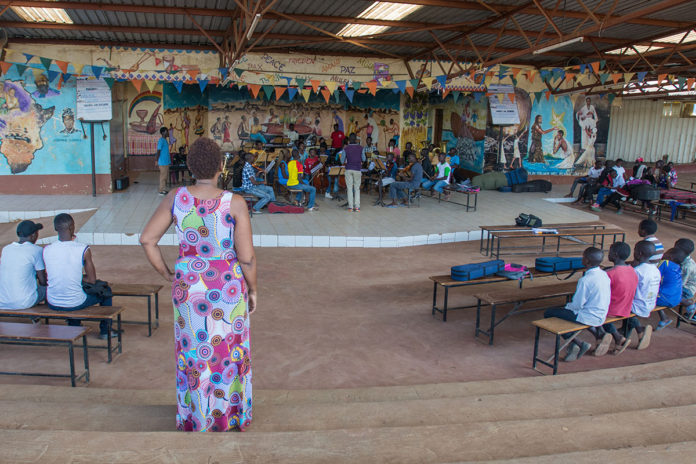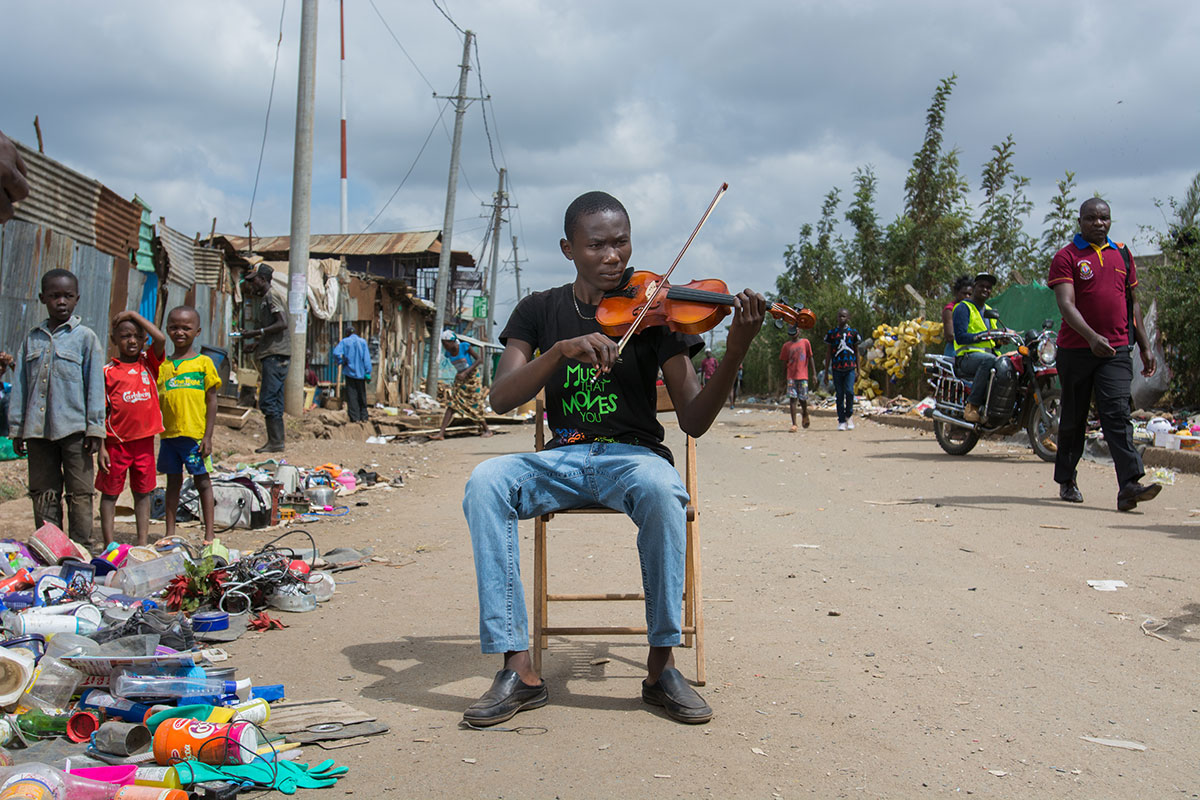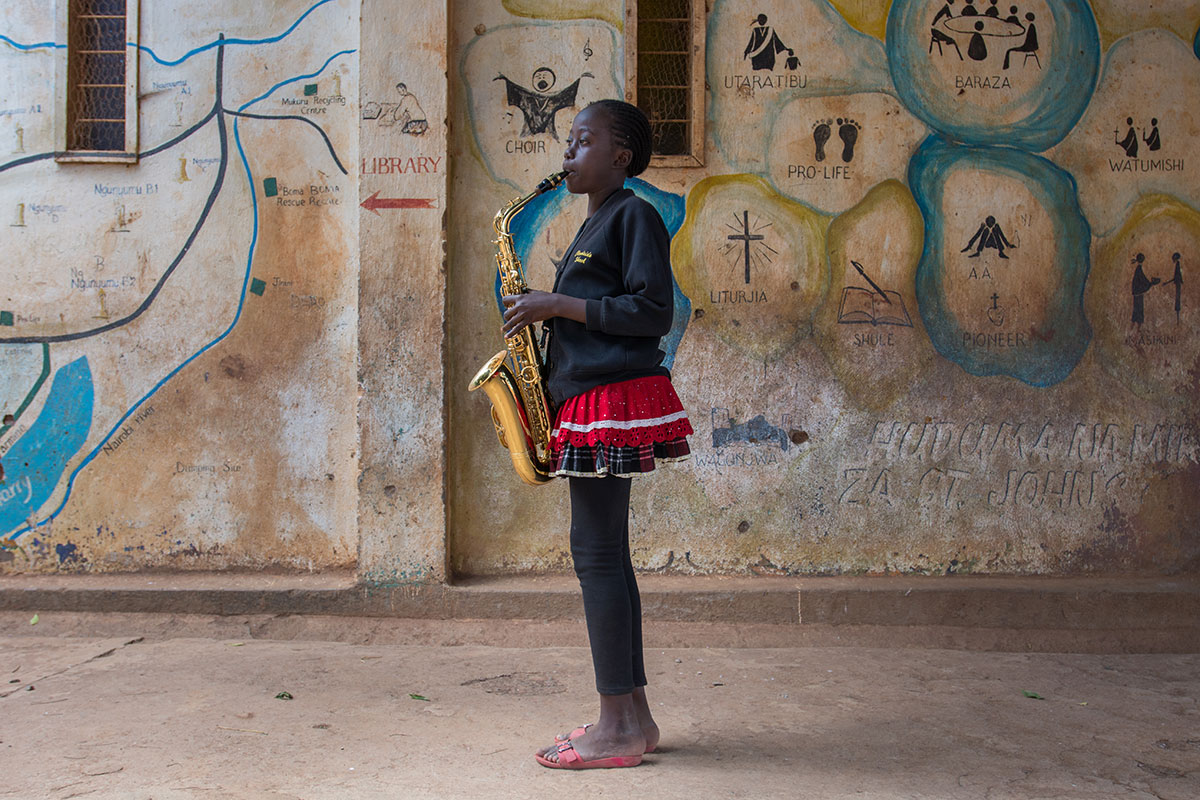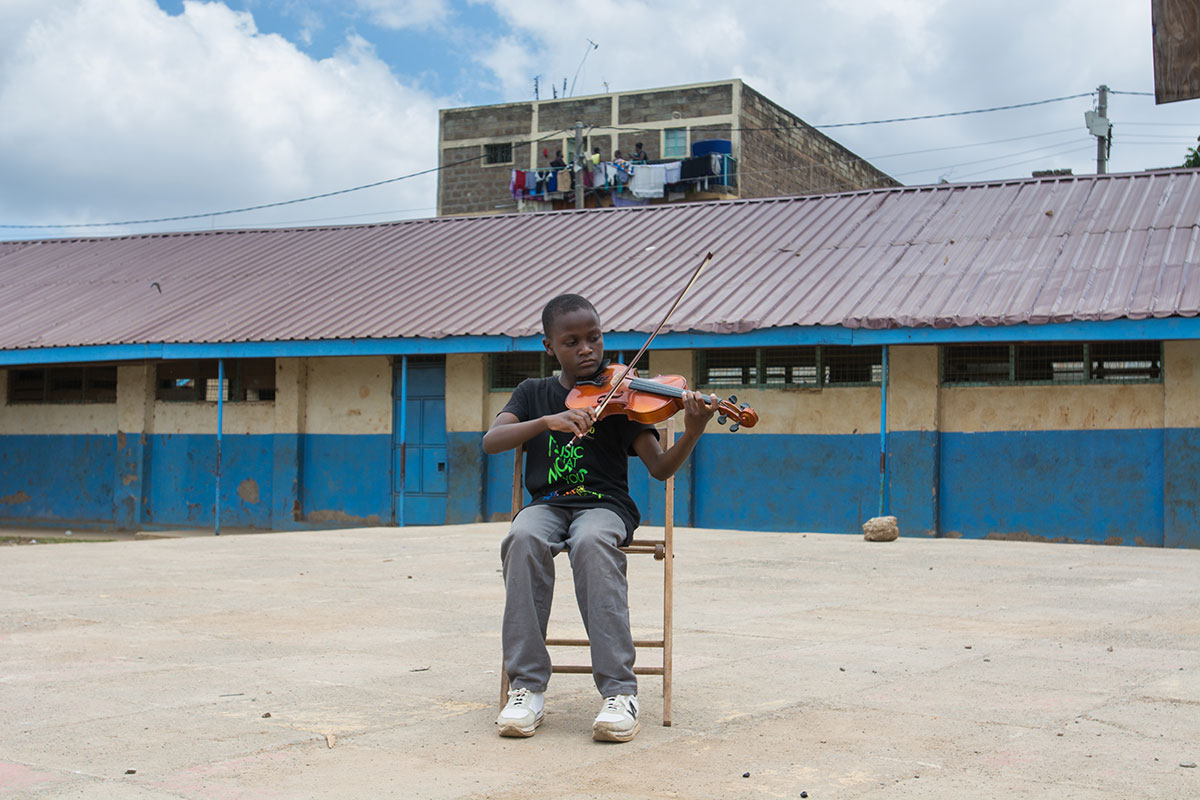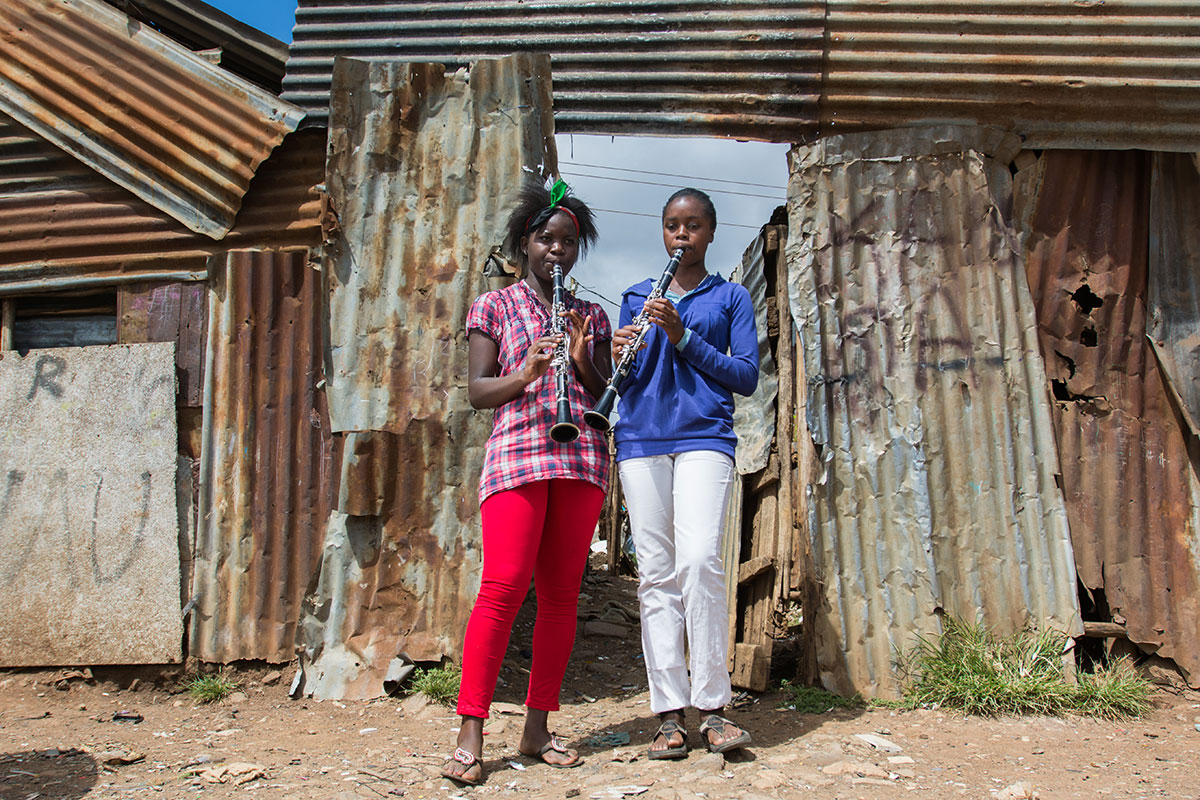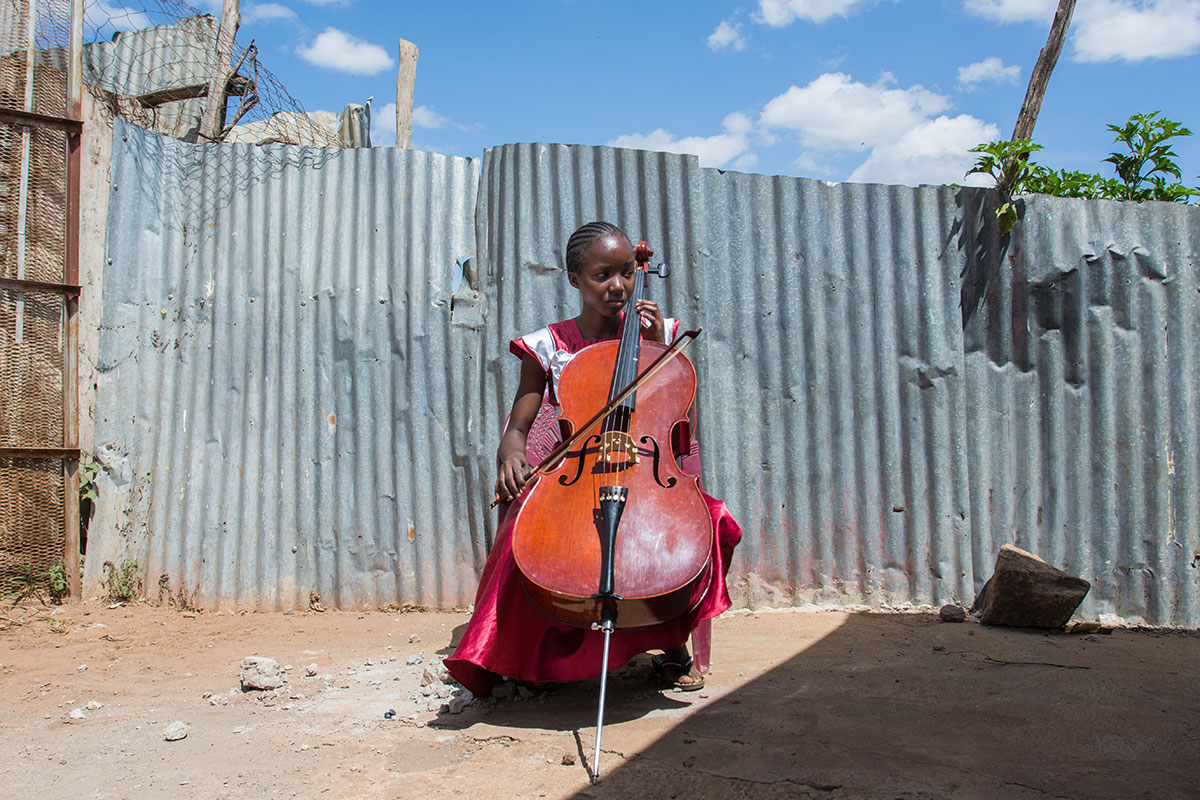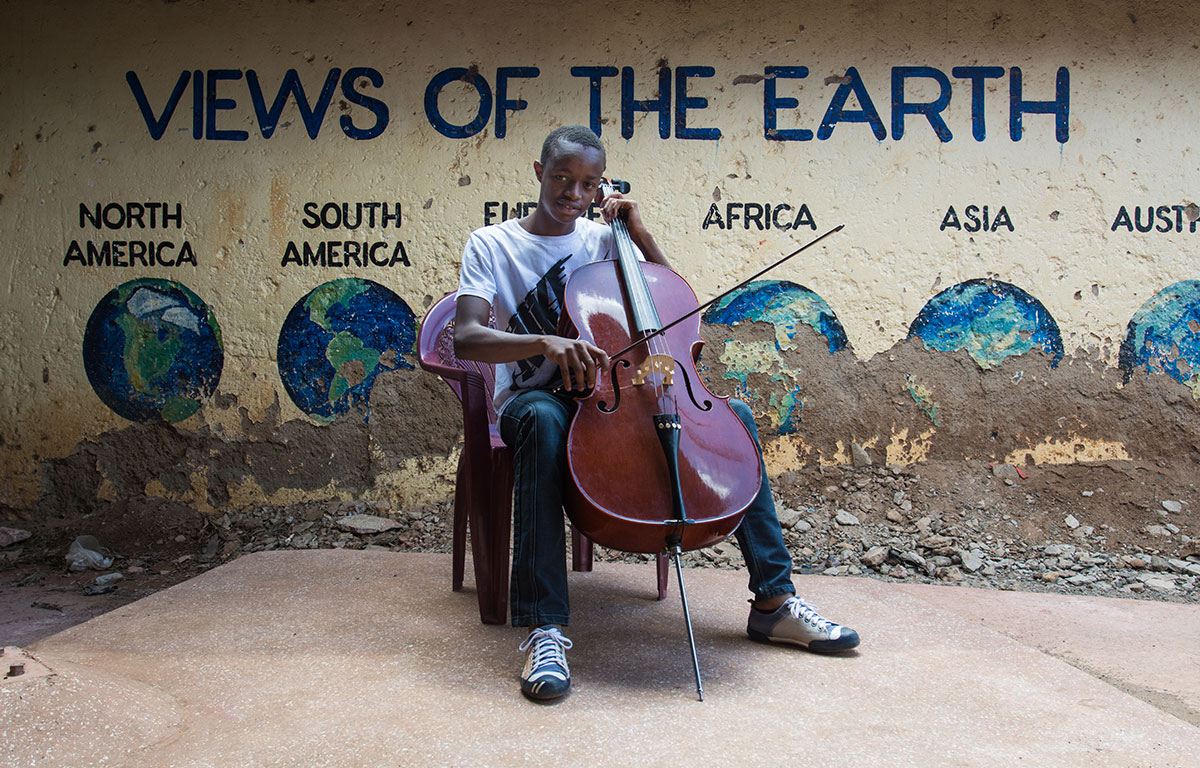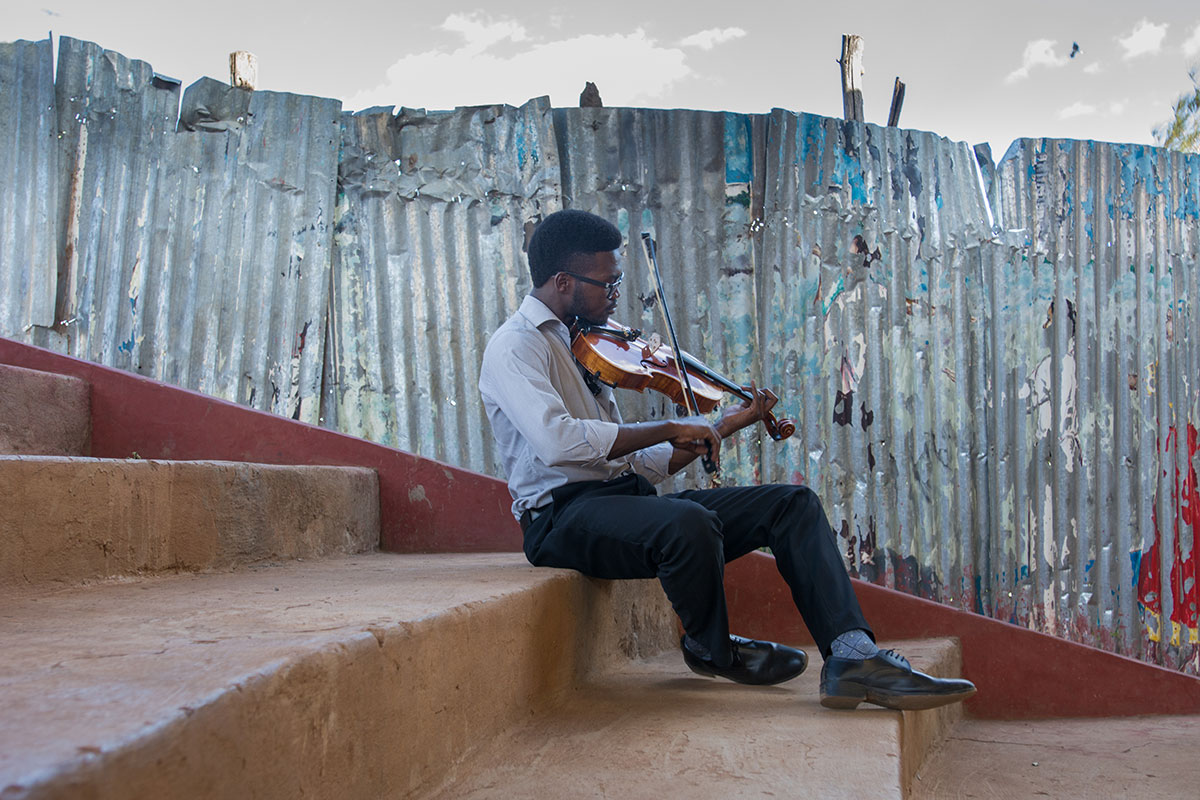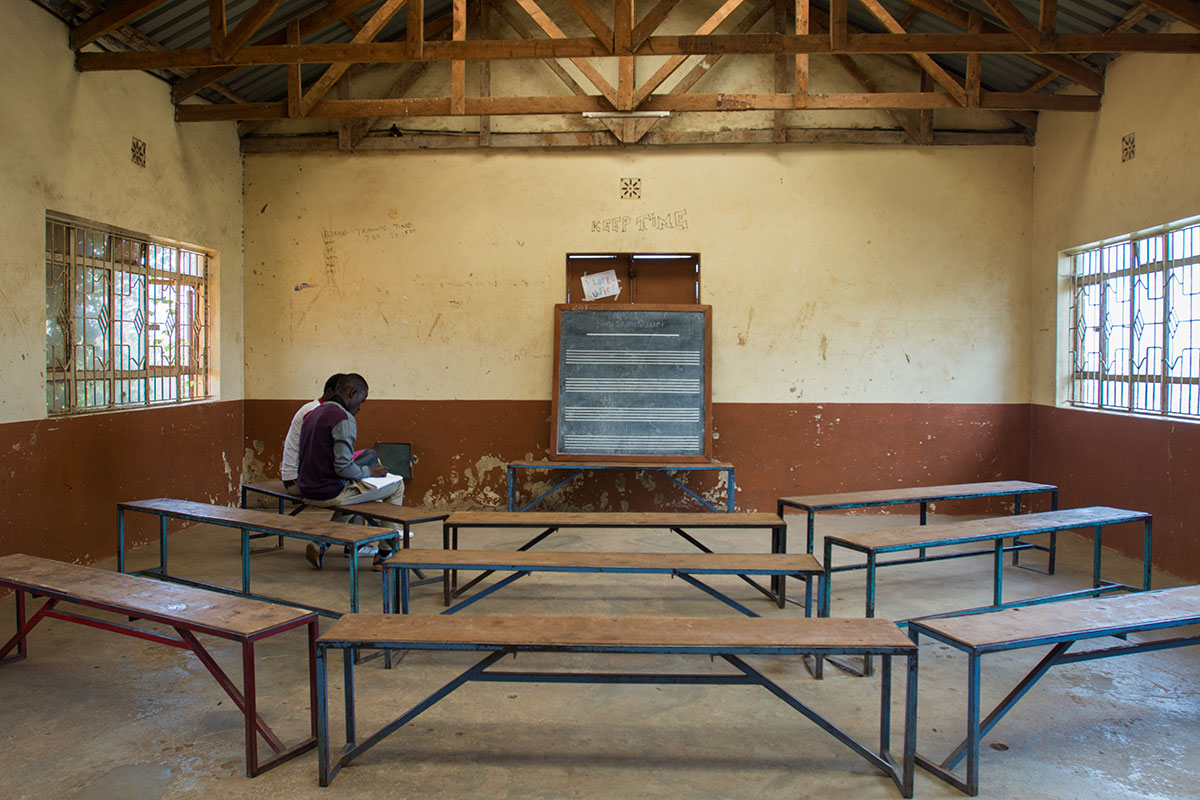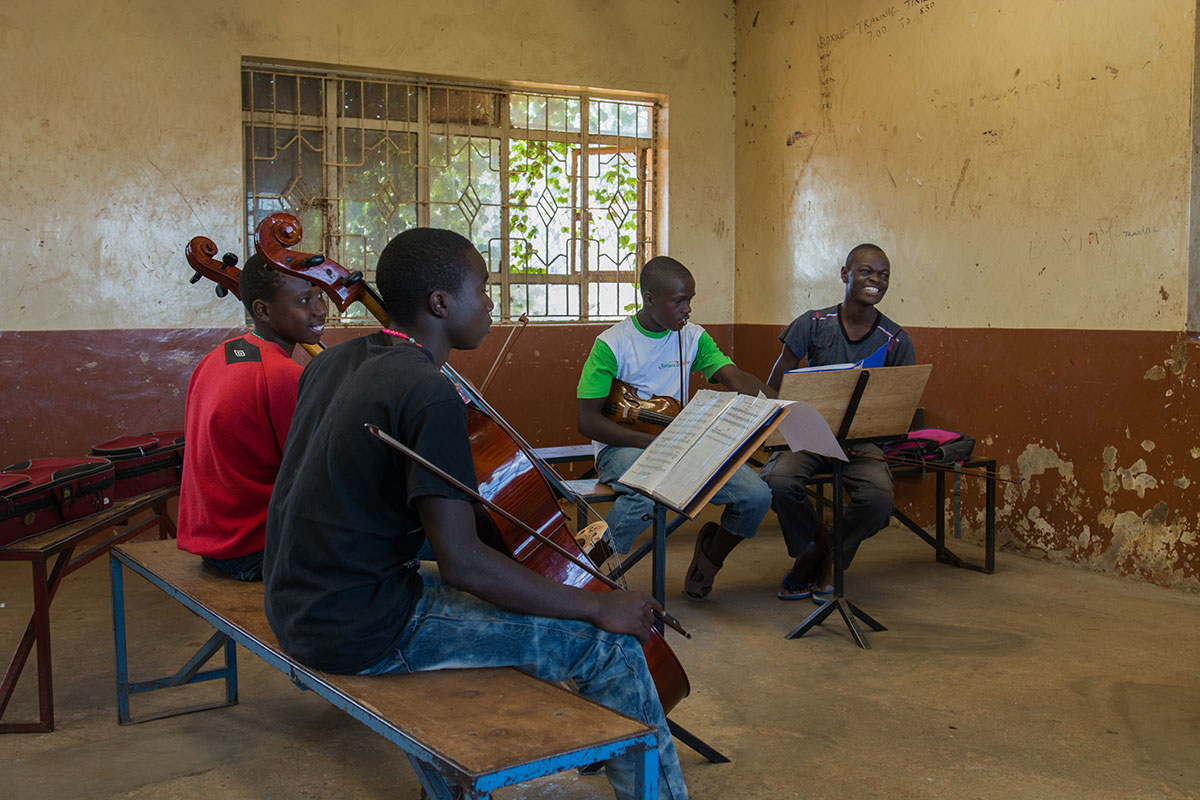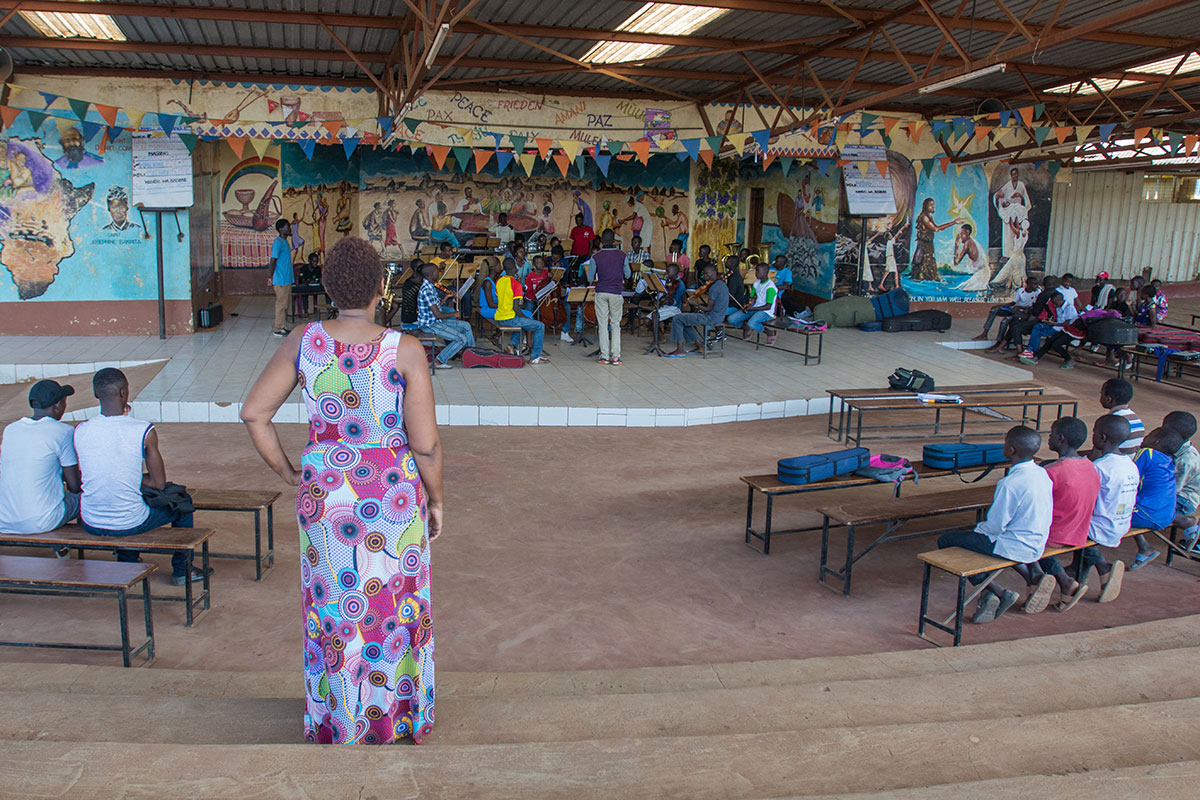Nairobi, Kenya – Korogocho is one of the largest slums in Nairobi, with 150,000 to 200,000 people living on a plot no larger than 1.5 square kilometres. Poverty, crime, drug and alcohol abuse, domestic violence and widespread HIV/Aids make this neighbourhood a tough place to grow up in.
Elisabeth Njoroge wanted to do something for the children living here. As a passionate singer with a strong belief in the transformative power of music, she founded the Ghetto Classics orchestra. Starting out with a crew of 14 singing children in 2008, the project has flourished into a bona fide youth orchestra with more than 80 young musicians.
“Playing music makes you forget the world around you. Troubles can be left behind and there is room again to focus on the positive things in life,” Elisabeth says. Music also gives the children the skills to overcome their daily challenges. “If you can master an instrument, you can master life. I honestly believe that,” she says.
Every Sunday, children from all corners of Korogocho pile into St John’s church, a spacious arena-shaped building with colourfully painted walls bordering a large rubbish dump. As soon as mass is over, they rush to the music room to collect their instruments and start rehearsing.
First, they meet in small groups to practise their parts. The string musicians gather in a room with a panoramic view over the dump. While screeching marabous circle over the rubbish, the violins practise octaves.
At the end of the day, the whole orchestra comes together in the centre of the church to play. The flutes begin softly, then the trombones take their cue. After a short drum solo, all instruments join in to create a beautiful harmony. “Look at their faces,” Elisabeth says. “These smiles are the power of music.”
Most instruments are donated by music schools or conservatories. They are owned by the orchestra and safely stored in the music room.
Their musical Sunday ends with the most experienced musicians playing a couple of pieces together, directed by conductor Brian Kepher. “He is one of our first members, and now he conducts and studies music. That just goes to show that this programme works,” says Elisabeth happily.


